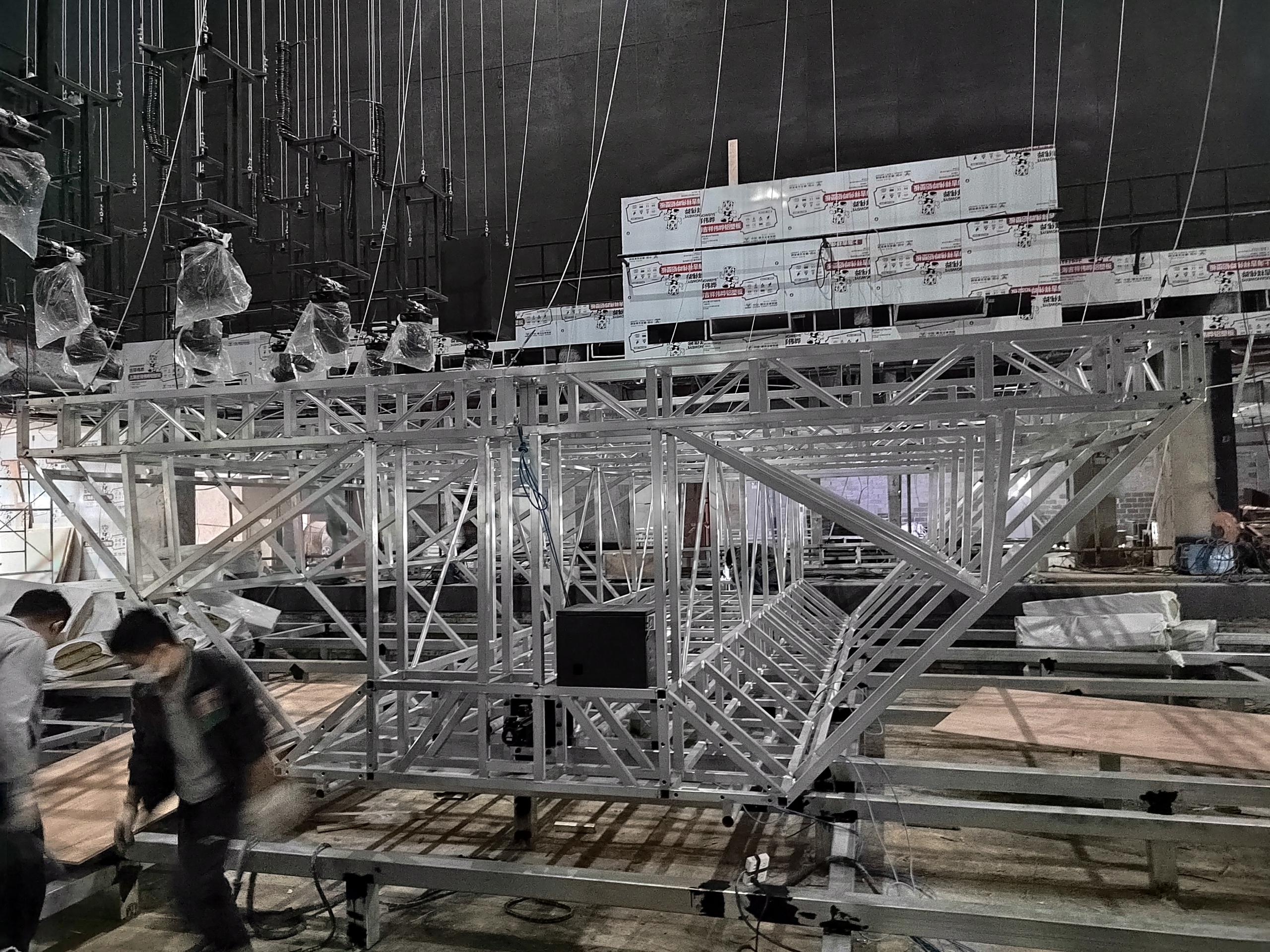
Publish Time: 2023-06-10 Origin: Site

Introduction: Club trusses play a vital role in creating stunning visual experiences and supporting elaborate stage productions in clubs and entertainment venues. However, compared to standard straight trusses, club truss production often requires more time and meticulous planning. In this article, we will delve into the reasons behind the extended production timelines for club trusses.
1. Customization and Detailed Drawings: The primary reason for the extended production time is that the majority of club trusses are custom-designed. Each club has unique requirements and specifications, necessitating the creation of custom drawings for production. This process involves translating the club's vision into a detailed plan, considering factors such as the desired outline, shape, and specific structural needs.
2. Complex Design Approval Process: While general drafts may receive initial approval from the club management team, these drafts usually only provide a basic outline of the structure. Additional shop drawings are required for production, taking into account critical factors like material length, entrance sizes, installation conditions, and the integration of stage equipment, lighting effects, hoists, anchor points, ceiling fixing points, and stage machinery movements.
3. Collaboration with Stage Lighting and Machinery Companies: Club truss production also entails close collaboration with stage lighting and machinery companies. These companies play a significant role in the final design and often have specific requirements that must be incorporated into the production process. The approval of drawings and alignment with their needs can add considerable time to the production timeline.
4. Evolving Ideas and Design Changes: Another contributing factor to the extended production time is the potential for changes in ideas and design preferences. Even after the initial draft approval, the club owner and the main designer may alter their concepts, leading to the need for revisions or a complete restart of the preparation process. This back-and-forth iteration can significantly impact the production schedule.
5. Last-minute Decision-making: In some instances, specific design elements may only be decided upon shortly before the confirmed opening time. These last-minute decisions can cause a tight schedule for deepening the drawings, requiring swift action to accommodate the changes. Consequently, waiting time is increased, affecting the overall production timeline.
Conclusion: Club truss production demands meticulous attention to detail and close collaboration with various stakeholders involved in stage production, including the club management team, stage lighting companies, and stage machinery providers. The custom nature of club trusses, combined with the need for detailed drawings, design approvals, and potential changes, significantly lengthens the production process. By understanding the reasons behind the extended timelines, stakeholders can better plan and allocate resources to ensure the successful and timely completion of club truss projects.
FOSHAN DRAGON STAGE
No.7,Xiaxi Industrial Area,Heshun,Nanhai District,Foshan,528241,Guangdong,China.
+86 136 3132 8997
